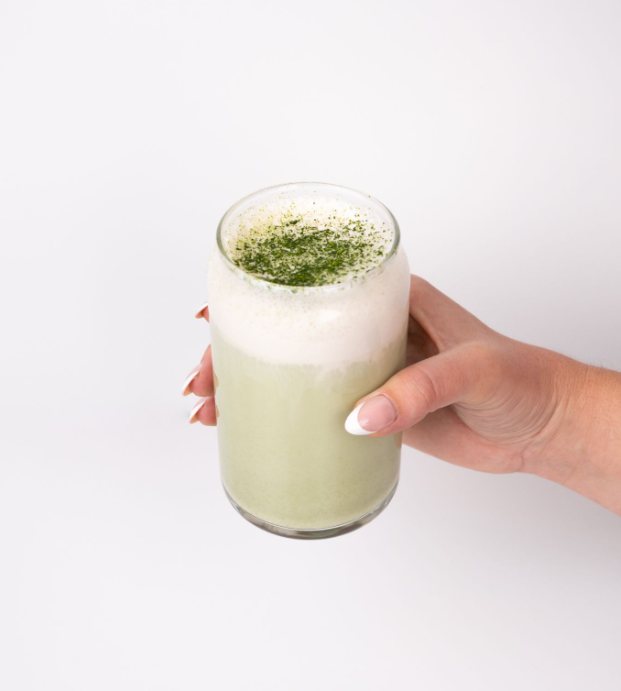
Your healthy metabolism may wane as you age. Loss of muscle mass, aging organs, and decreases in activity levels can all play a part—especially once you reach the age of 40.
However, unlike the punk rock bassist’s unpredictable guitar solo, a slowing metabolism isn’t outside of your control. In addition to committing to a healthy lifestyle, there are several ways to stay on top of your well-being and improve your metabolic functions, like exercising regularly, drinking more water, and taking probiotics. In this article, we’ll delve into what affects metabolism and how to increase metabolism after 40.
Why You Should Care About Your Metabolism
Metabolism is the scientific term for the work our body does to eliminate waste and transform food and liquids into the energy we need to stay healthy.
It involves the synchronization of two distinct processes called anabolism and catabolism. These processes build large, complex molecules from small ones and break down large molecules into smaller ones, respectively.
Metabolism is an important function for your overall health, affecting nearly every organ in your body, from your brain to your skin. In fact, a slow metabolism can result in many undesirable health outcomes, including:
- Weight gain
- Loss of lean muscle mass
- Decreased brain function
- Fatigue and exhaustion
- Depression
A slow metabolism can also be a sign of serious underlying health issues, like diabetes and hypothyroidism. Some signs of slow metabolism include lethargy, poor appetite, abdominal pain, or weight loss. Talk to your doctor to see if your metabolism might be the cause of your ailments.1
10 Tips to Increase Your Metabolism After 40
Increasing your metabolism after 40 isn’t an impossible dream. If you want to learn how to improve metabolic health, there are many things you can do for your metabolic functions to stave off the effects of aging.
If you’ve noticed that you’ve started to slow down, here are 10 tips for jumpstarting your metabolism.
#1 Exercise More
Staying active is vitally important if you want to increase your metabolism. Your metabolism rate is measured by how quickly your body converts calories to energy, so finding ways to boost that conversion is immeasurably helpful.
One such way is exercise. Here’s how boosting your exercise routine can help your metabolism:
Once your exercise routine begins to ramp up, we recommend you look into recovery supplements for athletes, as they are designed to help speed up the recovery process and reduce inflammation.
#2 Eat Better
As your metabolism is all about converting the food and drinks you digest into energy, it should come as no surprise that your diet can play a huge role in your metabolic rate. After 40, it becomes more important than ever to make the right dietary decisions and eat healthy food if you want to maintain a good metabolism.
Make sure that your healthy diet includes enough:
#3 Eat Regularly
Sometimes, eating well isn’t enough. When it comes to your metabolism, it’s equally important that you eat regularly.
Many medical experts suggest that eating at the same time every day and at regular intervals can help your metabolism catch up with the rest of you.4
When you feed your body at regular intervals, it becomes accustomed to a structured system of caloric intake. This helps your body better plan how it uses and conserves the energy it makes, and it keeps your body from storing excess calories and fat. Be consistent with what and when you eat and don’t go too long between meals.
#4 Be Smart About Calories
A frequent side-effect of a slow metabolism is weight gain. When your metabolism slows, your body isn’t as efficient at burning calories, which means it struggles to break down fat. As a result, many people turn to calorie counting to combat this.
But that’s not always the best course of action. A sudden or dramatic decrease in your caloric intake can slow your metabolism even further, which can:
- Make it harder for you to lose weight
- Contribute to further weight gain
That’s why a healthy, well-balanced diet supported by regular meals is better for your metabolism.
#5 Drink More Water
The human body is nearly 60% water, and our most vital organs are made up of even greater percentages of H2O.5 So it stands to reason that one way to increase your metabolism is to drink more water.
Water can help your metabolism because it:
To that end, try to drink at least 64 ounces of water, regularly apportioning them throughout the day.
#6 Reduce Alcohol Consumption
Ingesting alcohol can wreak havoc on your metabolism. When you drink alcohol, your body recognizes it as a toxin. Because the body’s goal is to stay as healthy as possible, its instinct is to remove all toxins as soon as possible. That means your body is going to metabolize first.
On the surface, that might not sound so bad. After all, what’s wrong with getting rid of the bad stuff first? Unfortunately, this situation is bad for your body for two big reasons:
Other foods and drinks aren’t metabolized – In the body’s rush to metabolize alcohol and remove it from your system, it has to wait to metabolize everything else. This can lead to missed nutrients and additional fat stores within the body, especially in the liver.
Calories from alcohol don’t burn fat – Calories from alcohol are known as “empty calories” because your body can’t use them for weight loss. Instead, they may make you gain weight, which can further slow your metabolism.
#7 Add Calcium to Your Diet
If you’re of a certain age, you’ve probably already introduced added calcium to your healthy diet as a way to protect your bone density. But calcium’s ability to raise your body temperature can also help increase your metabolism.
To introduce more calcium to your system, consider adding the following to your daily routine:
- Calcium supplements
- Calcium-rich foods like dairies, tofu, greens, and sardines
#8 Sleep More
If any of the options on this list seem appealing, it’s probably this one. Who wouldn’t love to sleep a few extra hours?
Sleep is a vital factor when it comes to your metabolism because it promotes:
It’s recommended that most adults sleep between seven and nine hours every night, so don’t skimp on your rest.
#9 Detox
If your metabolism is slowing down, it could be due to obstructions in your digestive tract. Sometimes, these obstructions can be caused by serious digestive issues like malabsorption. But just as often, they can be the result of food build-up over time.
Flushing your system can be an effective way to reset and regulate your digestive system and reinvigorate your metabolism. How often should you detox? Ideally, once a week is recommended, however there are many factors that can impact frequency.
For better digestive health, add enzyme and fiber-rich foods to your diet. Vegetables are an excellent source of these nutrients, so develop a taste for broccoli, beets, and dark, leafy greens. Fruits like apples, bananas, raspberries, and avocados are also tasty options. Learn more about foods to eat while detoxing.
#10 Take Probiotics
The live bacteria in probiotics have long been known to aid in digestive health. They can help your body convert food into nutrients and ease the symptoms of issues like colic, constipation, and Crohn's disease. They can also help increase enzymes in your saliva that help your gut digest food.
But taking probiotics can also improve your metabolism by helping:
Just make sure you take the right ones. The probiotics in the Lactobacillus paracasei and Bifidobacterium are known to be especially effective.8
Cymbiotika—A Path to Better Health
Like a punk rock band’s ever-evolving discography, your body goes through many changes, both inside and out. However, healthy aging is possible. While you’ll need to take a few of these changes in stride, there are others you can tackle with confidence—your metabolism is one of them.
Cymbiotika’s NMN + Trans-Resveratol supplement offers an easy, safe, and healthy way to help:
- Boost your metabolism
- Increase your energy
We combine polyphenols like apigenin and resveratrol, which are rich in antioxidants and antibacterials, with NMN to help you fight a slow metabolism and return to the life you love.
Our Apple Cider Vinegar capsules also help enhance metabolism with two key compounds: Chromium and Thiamine. Both help improve insulin resistance to suppress cravings and support blood sugar levels.
Sources:
- WebMD. Inherited Metabolic Disorders. https://www.webmd.com/a-to-z-guides/inherited-metabolic-disorder-types-and-treatments
- ACAP HealthWorks. Does Strength Training Really Increase Metabolism? https://www.acaphealthworks.com/strength-training-increase-metabolism/
- WebMD. How To Boost Your Metabolism With Exercise. https://www.webmd.com/fitness-exercise/guide/how-to-boost-your-metabolism
- StewardToday. Unlocking the 7 Secrets to Increase Metabolism Over 40. https://www.stewardtoday.com/unlocking-the-7-secrets-to-increase-metabolism-after-40/
- USGS. The Water in You: Water and the Human Body. https://www.usgs.gov/special-topics/water-science-school/science/water-you-water-and-human-body
- Better Health Channel. Obesity and hormones. https://www.betterhealth.vic.gov.au/health/healthyliving/obesity-and-hormones
- Sleep Foundation. How Your Body Uses Calories While You Sleep. https://www.sleepfoundation.org/how-sleep-works/how-your-body-uses-calories-while-you-sleep
- Healthline. How Probiotics Can Help You Lose Weight and Belly Fat. https://www.healthline.com/nutrition/probiotics-and-weight-loss







